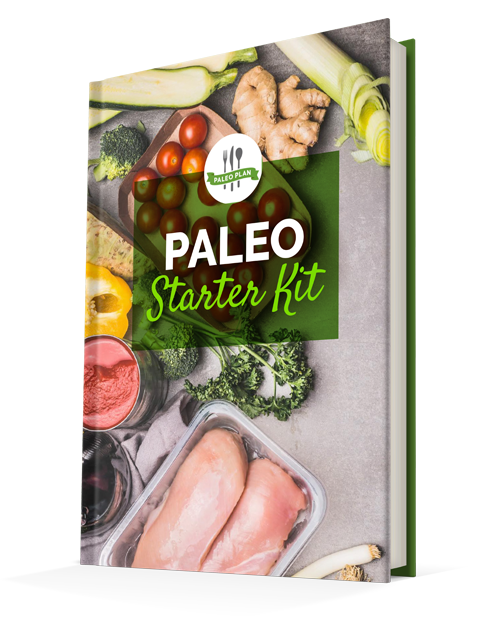
“Gut health” is a blanket term that refers to how healthy your digestive system is from start to finish. If you’re not able to break down foods well in your stomach, for example, by the time the inefficiently digested food reaches your small and large intestine, you will not reap the full benefits. Likewise, if you’re breaking food down fine, but can’t absorb it in your small and large intestines, you won’t get all of the vital nutrients from them.
Optimizing gut health is a process of making sure that every aspect of your digestive system is working as it should be. This falls under three categories: digestion, absorption, and microbiome. We’ll examine the best supplements to support each phase, how they work, and how to take them for the best results.
But as a reminder: don’t add supplements to your health routine before you discuss them with a health professional. Even though this information is backed by research, that doesn’t mean it’s best for you. Everyone is genetically unique, and some supplements might not work as well for you, or they could interact with your existing prescriptions and medications. So always get personalized advice before spending money on supplements and adding them to your dietary routine.
Supplements for Digestion
Digestion is much more than just chewing our food. It’s what happens as food is broken down into minute pieces in the stomach and the small intestine. The downside is that when digestion doesn’t start off as it should, it compromises the rest of the entire process, including overall gut health. The first step toward improving digestion is to make sure that you thoroughly chew your food before swallowing. But some other factors can cause digestive issues, like low stomach acid, which is more common than excess stomach acid. In fact, it’s low stomach acid that causes a majority of acid reflux and indigestion cases. (1)
Enzymes

Enzymes help to break down components of foods, ensuring that digestion is fully completed before the food moves onto the next phase. Typically a combination of betaine hydrochloride and pepsin, these have an extensive history of safe use.
Benefits: Helps to break down food, restores healthy acid levels in the stomach, improves gut function. (2)
How to Take: Enzyme supplements typically should be taken right before a meal to ensure maximum digestive assistance. Many different brands and enzyme combinations exists, but typically one capsule is taken before a meal, 1 to 3 times daily.
Cautions: Don’t take if you have previously had stomach ulcers or other stomach conditions; if you currently are on any prescription medications, consult your doctor to make sure these won’t change the way they’re absorbed.
Prebiotics

These are foods that feed the good bacteria in the gut. While probiotics supply the good bacteria themselves, prebiotics support digestion and gut health by providing this good-bacteria food as well as fiber, which helps to support every aspect of the digestive process. (3)
Benefits: Help to regulate glucose absorption during the digestion process; promote healthy bowel movements and regularity; promote feelings of fullness, which reduce overeating; promotes good balance of intestinal microbiome. (4)
How to Take: Prebiotics are found in many foods, like Jerusalem artichoke, onions, leeks, asparagus, and bananas, but you can also supplement to ensure you’re getting a regular intake. Inulin is a common prebiotic supplement that tends to be easy to digest.
Cautions: Don’t use if you take medications or prescriptions or have problems digesting fiber.
Ginger

A common anti-nausea remedy, ginger can also promote healthy digestion and relieve stomach discomfort. It’s also anti-inflammatory.
Benefits: When ginger is taken before a meal, it can help the stomach to more efficiently process food and digest it, which means it travels to the small intestine faster instead of sitting in the stomach and causing unpleasant symptoms like acid reflux. (5) When taken after a meal or between meals, it can help to address nausea and upset stomach.
How to Take: Formulations can vary, but typically one to two capsules before a meal
Cautions: Don’t take ginger if you’re on blood thinners, aspirin, NSAIDs, or other medications that can thin the blood. Always check with your doctor about medication and supplement interactions.
Supplements for Absorption
Most people think the biggest part of digestion takes place in the stomach, but it actually happens in the small intestine. This is where most of the food that is broken down gets absorbed into the bloodstream. If you can’t put the nutrients to use in the body, then you’re not getting any benefit from the foods you eat, so absorption is a critical element of the digestive process.
Curcumin

We know and love curcumin because it’s the active ingredient in turmeric, the anti-inflammatory superfood with a warm and spicy flavor. It boasts a wide variety of benefits for health, with several pertaining to digestion.
Benefits: Addressing inflammatory responses in the intestines from disorders like Crohn’s and IBD, which can affect nutrient absorption; decrease damage to the lining of the gut; protective against colorectal cancer; protective against acid reflux damage. (6)
How to Take: Curcumin should be paired with black pepper in supplement form to encourage absorption and use in the body. It can be taken once or twice daily with meals.
Cautions: Don’t take if you take blood thinners or anticoagulants; check with your doctor to ensure no other medications might have an interaction with curcumin.
Vitamin C
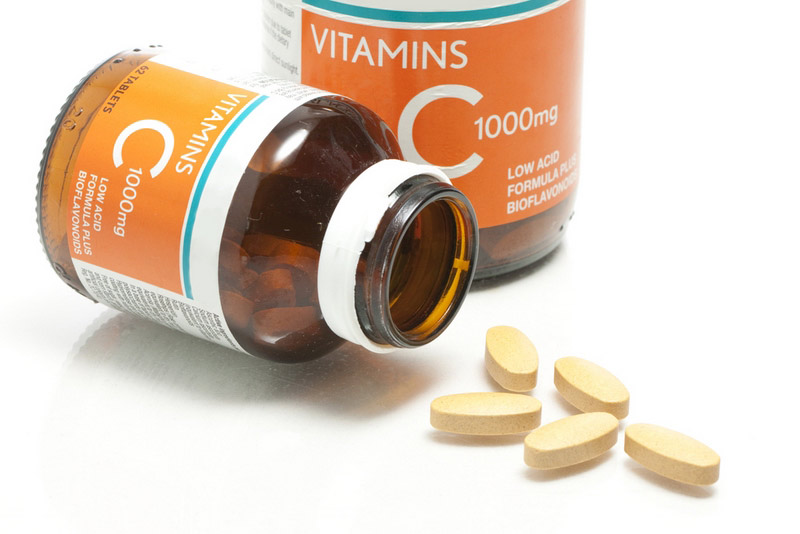
Well-known for being an antioxidant and the go-to nutrient we take when we have a cold, vitamin C is more than a medicine cabinet nutrient.
Benefits: Helps absorb critical nutrients, like iron; works to treat H. pylori infections that cause ulcers and other stomach disorders. (7, 8)
How to Take: One to two capsules daily, and look for supplements sourced from tapioca and not corn.
Cautions: Too much vitamin C can lead to diarrhea or other intestinal discomfort.
Vitamin D

Vitamin D has hormone-like properties in the body, but is required for overall immunity, mental health, and muscle function – including the muscles in the digestive tract.
Benefits: Helps the body absorb and use calcium; essential for how nerves and muscles function (digestive motility); reduces risk of colon cancer. (9)
How to Take: Dose is dependent on your levels, so get your blood tested before supplementing. Average doses are 400 to 4,000 IU daily.
Cautions: Vitamin D is a fat-soluble nutrient, which means you can get toxic if you take too much. Get your levels tested before supplementing and ensure you’re taking vitamin D3, not D2, which isn’t easily absorbed.
Supplements for Microbiome
The microbiome is the collection of good and bad bacteria that live in the gut. This bacteria is in a constant state of flux, and in order to stay healthy, the good bacteria need replenishment on a regular basis. Fermented foods contain this good kind of bacteria, but you can also supplement. Other nutrients help to keep the lining of the gut healthy and ensure that the good bacteria have an environment they can thrive in.
Collagen
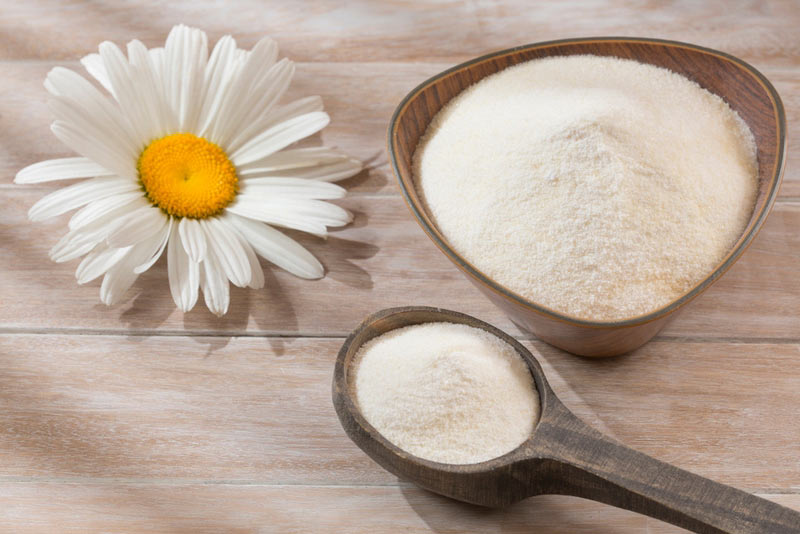
Many tissues in the body are made of collagen, and the gut lining is no exception.
Benefits: Moderates inflammation in IBD and other intestinal conditions, and helps with tissue repair and intestinal integrity. (10)
How to Take: Two to four scoops daily in liquid.
Cautions: While collagen isn’t known to have any interactions or problems, consult a doctor before adding supplements to your diet.
Glutamine

An amino acid that is essential for the structural integrity of the intestines, glutamine is vital for gut health.
Benefits: Keeps intestinal barrier functions working properly and helps repair them; reduces inflammation; protects against damage. (11)
How to Take: One to three capsules daily or as directed by your practitioner.
Cautions: While there are no major known interactions, always ask your practitioner before starting supplements.
Probiotics
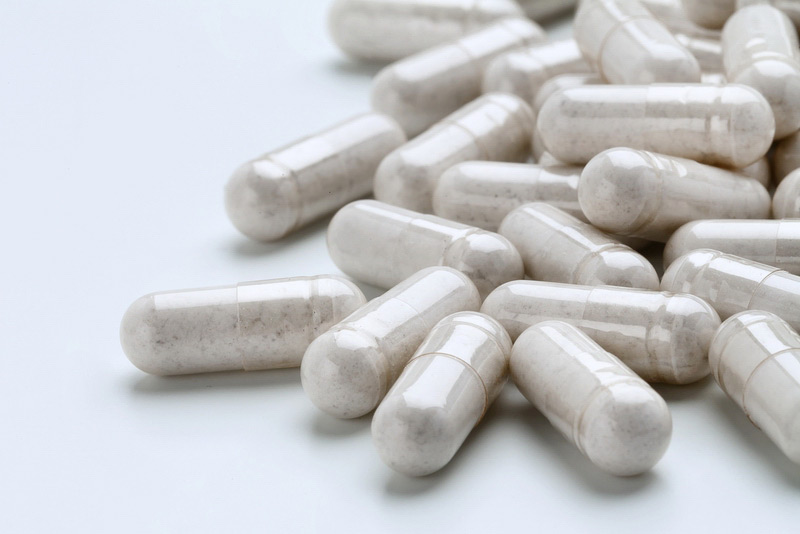
Probiotics are the good bacteria that populate our guts, supplied in capsule or powder form to help provide balance and to counteract bad bacteria, which naturally finds its way into our guts.
Benefits: Balance gut flora; reverse effects of antibiotics side effects and balance diarrhea; treat Crohn’s disease and ulcerative colitis. (12, 13, 14)
How to Take: There are many different strains and products available. Choose a broad-spectrum supplement, and take one to two capsules before bed.
Cautions: Certain strains of probiotics can affect people differently, so make sure your practitioner advises you on the best strains for you.
Psyllium
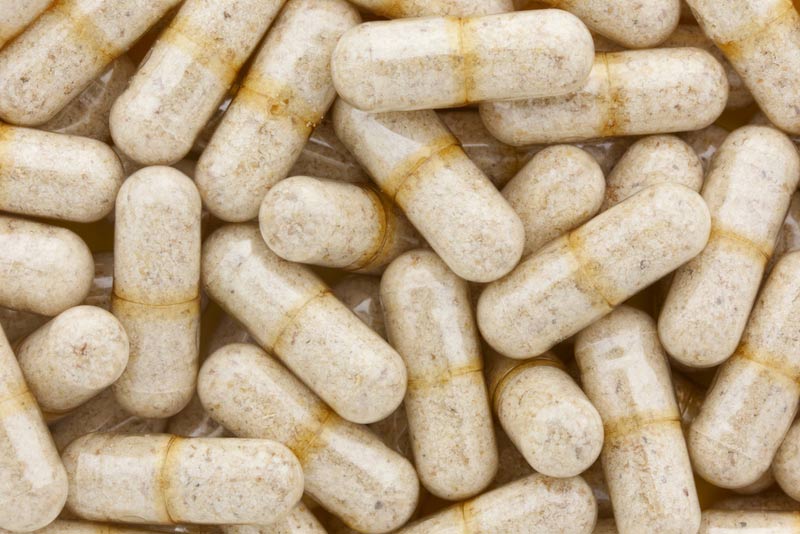
Psyllium is a fiber supplement that can aid in elimination and overall digestive wellness.
Benefits: Helps relieve constipation without being habit-forming or harsh; can alleviate diarrhea; can function as a prebiotic and support good intestinal bacteria. (15, 16, 17)
How to Take: Psyllium can be found in powder or capsules, with recommended dosages between 5-10 grams per day. But if you’re new to fiber, start small and work your way up.
Cautions: Few side effects are noted, but some people can be sensitive to fiber, so don’t start unless recommended by your doctor, and as always, discontinue if you notice discomfort.
Bottom Line
Gut health is closely tied to healthy digestion and elimination. In order to support your entire digestive process, you may need some additional support from supplements. These supplements can offer benefits that range from boosting stomach acid, increasing absorption, and improving your bacterial balance in the gut. Never take supplements without your doctor’s approval, however, because some can interact with other medications or over-the-counter products.

(Read This Next: 9 Leaky Gut Symptoms and How to Start Healing Now)
